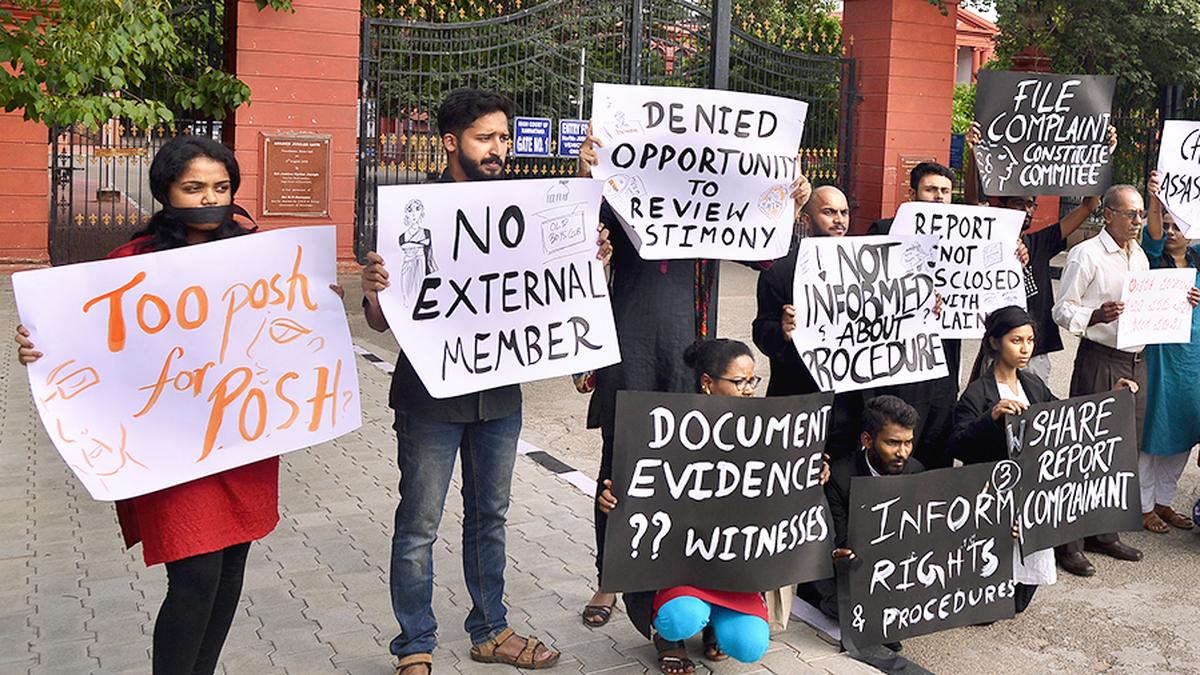
Why women don’t come forward to report sexual misconduct
The Hindu
Discussion on sexual harassment in academia and workplaces, highlighting the importance of internal complaints committees for compliance with regulations.
Before she decided to walk away from her PhD programme at one of the most reputed public-funded universities in Delhi, a 29-year-old research scholar wrote a note to her professors narrating for one last time the harrowing time she had under her supervisor and how her complaint of sexual harassment against him to the institute went unheard for weeks. She signed off the letter with the line: “Ironically, I was pursuing my PhD on women’s access to higher education in India.”
As the publication of the Justice K. Hema Committee report on harassment and abuse in the Malayalam film industry reignited discussions about sexual harassment in films, the template and impact of such acts appear to bear similarities across professions ranging from media to academia to the corporate world.
Under the Prevention of Sexual Harassment (PoSH) Act, 2013, it is mandatory for every organisation to constitute an internal complaints committee (ICC) when there are 10 or more women employees working there. The PoSH Act, 2013 and the University Grants Commission (Prevention, Prohibition and Redressal of sexual harassment of women employees and Students in Higher Educational Institutions) Regulations, 2015, mandate the formation of an ICC or internal committee (IC) by an order in writing in every college.
By the time the university panel took up the 29-year-old PhD student’s complaint, it was too late. She had first complained in May this year, but it was only in July that the ICC began its proceedings and suspended the professor. Unable to bear the harassment and faced with uncertainty regarding her career, the woman returned to her home State in the Northeast and is looking for a job now.
Speaking to The Hindu, she said, “The ICC had called me for questioning after I left the city for good. The line of questioning was insensitive. Had they acted on time, I would have stayed on and not quit my PhD.”
Like her, women across institutes and workplaces are afraid of going forward with their complaints, fearing that approaching the ICC might “complicate things”.
Another such case surfaced in Jamia Millia Islamia recently with a student alleging that she was sexually harassed by her professor. Her friend said, “She first approached the police instead of the ICC fearing that the matter would die down. Even though the ICC is hearing her complaint, she said she is facing character assassination.”













